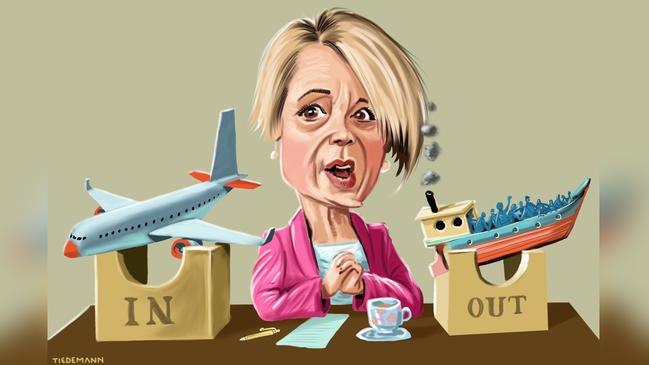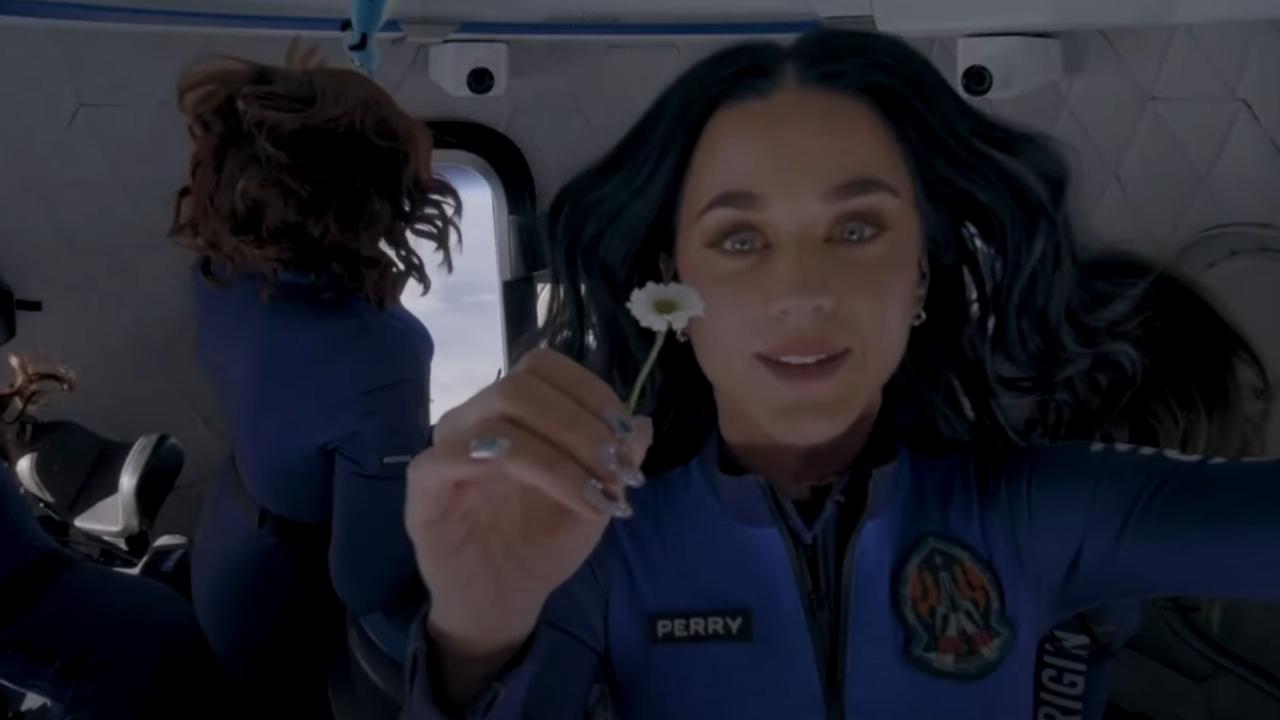Labor seeks airport in the storm
Labor has opened a new front on border protection, but it’s a long shot for Kristina Keneally.

That’s because during the Rudd and Gillard years Labor changed the policy settings for offshore processing and temporary protection visas for asylum-seekers, in the aftermath of which an influx of 50,000 boatpeople (an awful term) arrived.
The Coalition — especially Tony Abbott as opposition leader — successfully lampooned Labor for it, even taking the high moral ground and telling Labor MPs they had “blood on their hands” because of the many drownings courtesy of policies that restarted the people-smuggling trade.
What began as an attempt to insert more humanity into Australia’s border protection policies turned into an unmitigated political and policy disaster for the Labor government.
Even though it was Kevin Rudd on his second go as prime minister who made the deal with Papua New Guinea, after Labor under Julia Gillard previously tried to implement the Malaysia Solution (thwarted by the Coalition in the parliament), the damage was done.
Labor was seen as soft on border protection and ineffective at “stopping the boats”, and as a consequence the party shied away from a political fight over the issue for years.
Labor’s left flank now attacks the party for abandoning the policies it initially pursued. Since losing the 2013 election, especially in the wake of the Coalition’s successful boat turnbacks, Labor’s asylum-seeker policies have been a near mirror image of those of the Coalition — including boat turnbacks, which Labor told us would never work. Copying the Coalition’s policies was all about moving on to more politically fruitful topics.
The ultimate sign of how hard Labor was working to push border protection away from public view came when, as opposition leader, Bill Shorten appointed Shayne Neumann as immigration spokesman. The latter is what you might call an invisible media performer. Neumann’s brief was to fade from view — a task he excelled at.
But fast forward to this year and in the aftermath of Shorten losing the unlosable election Labor has changed tactics. Kristina Keneally — a veritable media magnet to be sure — has been handed the shadow home affairs portfolio and, with it, a licence to generate media attention.
Labor continues largely to mirror the Coalition’s border protection policies when it comes to boats, even giving the government credit for successfully stopping the boats (which means turning them around on the high seas).
But Keneally is working hard to attack the government on the broader issue of border protection, shifting attention to surging numbers of people seeking asylum in Australia after arriving by plane.
Having hosted a political talk show with the former NSW premier for several years before she resumed her political career at the federal level, I have to admit to being a little surprised when rumours emerged that Keneally was going to be appointed as Shorten’s home affairs minister had Labor won the election.
I was equally surprised when Anthony Albanese appointed her to the same role on the opposition benches. We had many an on-air discussion waxing lyrical in agreement at the inhumane policies the Coalition embraced to stop the boats. I wondered how Keneally would go having to suddenly defend such policy settings with a straight face.
But the focus on plane arrivals is an interesting shift and one Keneally is well placed to prosecute.
That said, it is still a long shot for Labor to score political points over the Coalition on the issue of border protection, even if Keneally won’t die wondering.
The numbers don’t lie. Since the Coalition came to power nearly 100,000 people arriving here by plane have sought asylum — twice the number of arrivals by boat on Labor’s watch. The overwhelming majority of asylum claims by people arriving by plane are vexatious, in sharp contrast to claims by people arriving by boat.
The government likes to point out that, unlike boat arrivals, people coming here by plane have proper documentation, which is true in so far as they need it to pass through Customs. But even if asylum-seekers arriving by plane have proper documentation it’s misleading documentation because as soon as they get here they quickly indicate they weren’t travelling for a holiday or to study. Rather, they are seeking asylum.
And it’s not just that we are about to hit 100,000 people making such claims during the Coalition’s time in power. The numbers are increasing.
In 2014-15 just more than 8000 people made such claims. During the past two financial years 27,884 and 24,520 people coming here by plane sought asylum. This financial year the number of claims will jump once more, according to departmental figures.
Don’t forget, nearly 85 per cent of these claims eventually are deemed to be invalid.
Which brings us to the argument Labor is attempting to prosecute. It says the government was so focused on stopping the boats it let asylum-seekers coming here by plane get out of hand.
In short, the government didn’t keep up with the changing tactics of people-smugglers.
This may be true; there is growing evidence that unsuccessful applicants are part of a co-ordinated effort to get people from poorer countries into our wealthy society, where they can earn higher wages.
Labor believes people are coming here by plane to seek asylum well aware that their applications are unlikely to be successful but, because the appeals process can take years, they can earn higher wages than they would back home.
The narrative neatly plays to Labor’s union base and across time may cause political difficulties for the Coalition among mainstream voters — especially when the government won’t tell us how many unsuccessful asylum-seeker applicants are illegally at large in the community.
When that happens they can no longer work legally — they must work within the black economy or turn to crime.
We are talking about potentially tens of thousands of people here illegally, which is probably why the government won’t give us an official figure.
If the Australian economy continues to suffer and unemployment and underemployment continue to rise, the Coalition’s failure in this policy space just may become a negative closer to the next federal election. Of course, the government tells us plane arrivals don’t risk deaths on the high seas the way boat arrivals used to during the Labor years.
Incidentally, I’ve always wondered how turning around myriad boats and towing them back out to sea when they come near our shores prevents deaths at sea. But that claim seems to have become accepted wisdom in the post-truth era we live in.
Peter van Onselen is a professor of politics at the University of Western Australia and Griffith University.



Border protection (a euphemism for keeping asylum-seekers out) is arguably Labor’s weakest policy area; certainly politically.